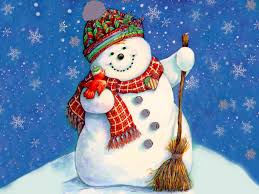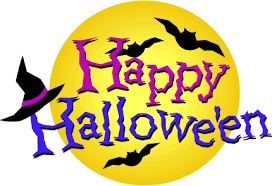AULD LANG SYNE
Hi kids! Today is the last day of the year. I've thought that it's the moment to listen to the song: "Auld Lang Syne". It is a Scots poem written by Robert Burns in 1788 and set to the tune of a traditional folk song. It is well known in many countries, especially in the English-speaking world, because people sing it to celebrate the start of the New Year at the stroke of midnight. Do you want to sing it? Here you have the lyrics and a wonderful version that Rod Stewart performed at Stirling Castle.
LYRYCS
Should old acquaintance be forgot,
and never brought to mind ?
Should old acquaintance be forgot,
and old lang syne ?
CHORUS:
For auld lang syne, my dear,
for auld lang syne,
we'll take a cup of kindness yet,
for auld lang syne.
And surely you’ll buy your pint cup !
and surely I’ll buy mine !
And we'll take a cup o’ kindness yet,
for auld lang syne.
CHORUS
We two have run about the slopes,
and picked the daisies fine ;
But we’ve wandered many a weary foot,
since auld lang syne.
CHORUS
We two have paddled in the stream,
from morning sun till dine;
But seas between us broad have roared
since auld lang syne.
CHORUS
And there’s a hand my trusty friend !
And give me a hand o’ thine !
And we’ll take a right good-will draught,
for auld lang syne.
CHORUS
LYRYCS
Should old acquaintance be forgot,
and never brought to mind ?
Should old acquaintance be forgot,
and old lang syne ?
CHORUS:
For auld lang syne, my dear,
for auld lang syne,
we'll take a cup of kindness yet,
for auld lang syne.
And surely you’ll buy your pint cup !
and surely I’ll buy mine !
And we'll take a cup o’ kindness yet,
for auld lang syne.
CHORUS
We two have run about the slopes,
and picked the daisies fine ;
But we’ve wandered many a weary foot,
since auld lang syne.
CHORUS
We two have paddled in the stream,
from morning sun till dine;
But seas between us broad have roared
since auld lang syne.
CHORUS
And there’s a hand my trusty friend !
And give me a hand o’ thine !
And we’ll take a right good-will draught,
for auld lang syne.
CHORUS
BRITISH CHRISTMAS TRADITIONS
Christmas Eve (December 24) is traditionally the day for decorating churches and homes. I Christmas Eve
Christmas traditionally started at sunset on 24 December. Our ancient ancestors considered this to be Christmas Evening (Christmas Eve for short).
What happens on Christmas Eve in Britain? Christmas Eve is a very exciting time for young children. It is the time when Father Christmas (Santa) comes. The children leave mince pies (Mince pies are an essential part of Christmas. They are made from minced fruit not meat) and brandy for Father Christmas, and a carrot for the reindeer.
Christmas Stockings From 1870, children have hung up Christmas stockings at the ends of their beds or along the mantelpiece above the fireplace. Children hang Christmas stockings or bags up ready for Father Christmas, who will hopefully fill them up with presents, if the children have been good. Why do the children hang up Christmas stockings? Father Christmas once dropped some gold coins while coming down the chimney. The coins would have fallen through the ash grate and been lost if they hadn't landed in a stocking that had been hung out to dry. Since that time children have continued to hang out stockings in hopes of finding them filled with gifts.
View more documents from gueste52f1e77.
What happens on Christmas Eve in Britain? Christmas Eve is a very exciting time for young children. It is the time when Father Christmas (Santa) comes. The children leave mince pies (Mince pies are an essential part of Christmas. They are made from minced fruit not meat) and brandy for Father Christmas, and a carrot for the reindeer.
Christmas Stockings From 1870, children have hung up Christmas stockings at the ends of their beds or along the mantelpiece above the fireplace. Children hang Christmas stockings or bags up ready for Father Christmas, who will hopefully fill them up with presents, if the children have been good. Why do the children hang up Christmas stockings? Father Christmas once dropped some gold coins while coming down the chimney. The coins would have fallen through the ash grate and been lost if they hadn't landed in a stocking that had been hung out to dry. Since that time children have continued to hang out stockings in hopes of finding them filled with gifts.
Christmas Day is celebrated on the 25th December, with a Christmas dinner at midday for the whole family.
How do the British prepare for Christmas?
During the weeks before Christmas Day, we send cards, watch nativity plays and go to carol services. We put up Christmas decorations in our homes and churches.
Christmas pantomimes
A pantomime is a traditional British Christmas play. They are an important part of our Christmas festivities. They are performed in theatres, villages halls and community centres.
Pantomimes traditionally start on Boxing Day and run for two or three months in theatres around the country.
Boxing Day
In Britain, Boxing Day is usually celebrated on the following day after Christmas Day, which is 26 December. However, strictly speaking, Boxing Day is the first weekday after Christmas.
Traditionally, 26 December was the day to open the Christmas Box to share the contents with the poor. The Christmas box was a wooden or clay container where people placed gifts.
A Christmas Cracker is a brightly coloured paper tube, twisted at both ends. A person pulls on each end of the cracker and when the cracker breaks, a small chemical strip goes “Pop” and the contents fall out. A Christmas cracker traditionally contains a paper crown, a small gift and a joke written on a slip of paper.
If you want to know anything else about Christmas traditions, here you have a job made by old students.
A Christmas Cracker is a brightly coloured paper tube, twisted at both ends. A person pulls on each end of the cracker and when the cracker breaks, a small chemical strip goes “Pop” and the contents fall out. A Christmas cracker traditionally contains a paper crown, a small gift and a joke written on a slip of paper.
If you want to know anything else about Christmas traditions, here you have a job made by old students.
CHRISTMAS ACTIVITIES
Hi! Christmas' coming soon. I've found some activities. There are some videos, games, songs, etc.I hope you like them

Christmas vocabulary 1
Christmas vocabulary 2
Christmas vocabulary 3
Christmas vocabulary 4
Decorate the tree
Make a snowman
Coloring on line
Christmas book
Chritmas maze
Christmas vocabulary 1
Christmas vocabulary 2
Christmas vocabulary 3
Christmas vocabulary 4
Decorate the tree
Make a snowman
Coloring on line
Christmas book
Chritmas maze
ACTIVITIES
Hi kids!
We're learning frequency adverbs, and the last unit was about comparative adjectives, so I think it's time to improve both them. Are you ready? Play and check your level.
We're learning frequency adverbs, and the last unit was about comparative adjectives, so I think it's time to improve both them. Are you ready? Play and check your level.
HALLOWE'EN!!!!!!!!!!!!!!!!!!!!!!
Hi guys! Halloween is just around the corner, so that is the reason why I've been preparing some games, vocabulary charts, videos, etc, that I hope you like and enjoy them a lot. Are you ready to play? Clik on them and have fun!
Spell the word
Paint it
Halloween hangman
Let's talk about Halloween
Listen about Halloween
More about Halloween. A book to read
Haunted House
Haunted House 2
Memory game
 Trick or treat
Trick or treat
Halloween book
Create a pumpkin
Make a monster
Dress up a fairy for Halloween
Haunted colouring book
More colouring
Spell the word
Paint it
Halloween hangman
Let's talk about Halloween
Listen about Halloween
More about Halloween. A book to read
Haunted House
Haunted House 2
Memory game
Halloween book
Create a pumpkin
Make a monster
Dress up a fairy for Halloween
Haunted colouring book
More colouring
WE'RE BACK!!!!!!!!!!!!
Yes! It´s true! We are back again! We have to start a new school year now that we are full of energy after our summer holidays. Do you know a better way to do it than learning classroom language? There are many classroom expressions you are going to use once and again in the English class. If you don´t have a pencil, how do you ask for it? And if you need to go to the toilet? I´m sure you know most of them. Just in case, here is a video to remember them.
Subscribe to:
Comments (Atom)


